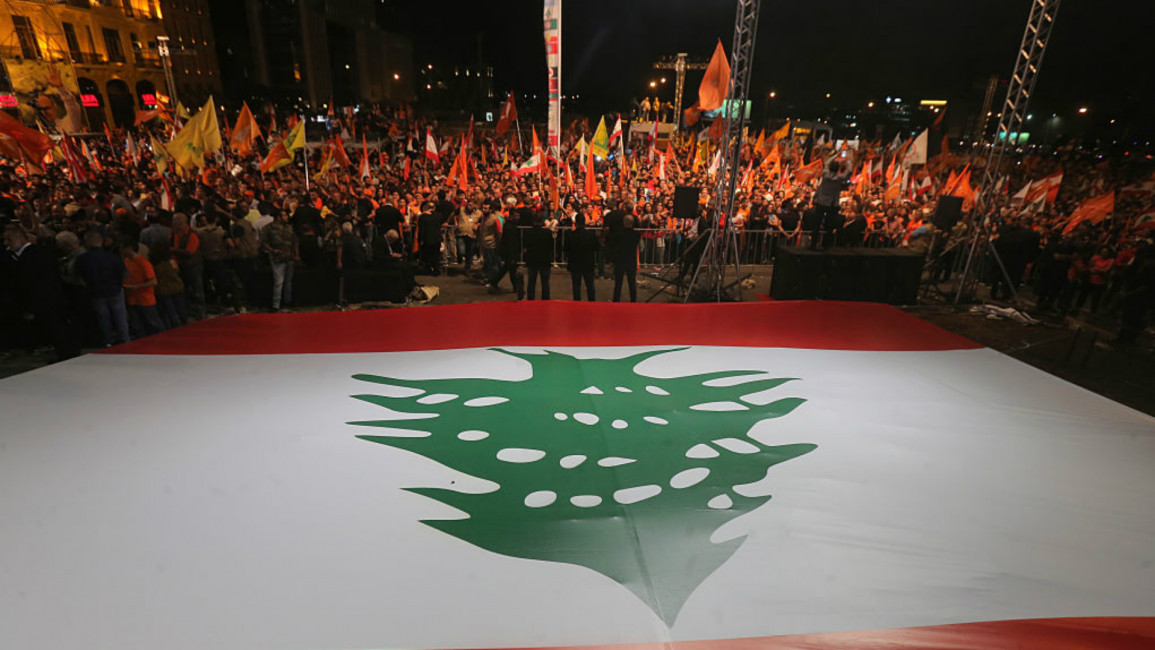
Aoun's agenda spells surprising new alliances in Lebanon
After four rounds of voting, Michel Aoun was elected on Monday by the Lebanese parliament as the country's 13th president, ending a two and a half year power vacuum at the head of the state.
His election was made possible by the surprise turnaround of former Prime Minister Saad Hariri, who endorsed Aoun's candidacy at the end of October.
Hariri - the leader of the largest Sunni formation the Future Movement - was at odds with Aoun and his staunch ally Hizballah, who were allegedly involved in the killing of Hariri's father, former Prime Minister Rafic Hariri.
The election of Aoun, who also leads the Christian Free Patriotic Movement, has put an end to a long period of political paralysis. But more importantly it has dramatically shaken the balance of power on the Lebanese political scene.
In his announcement in support of Aoun, Hariri recognised the political risk he was taking. Aoun is highly unpopular among Hariri's Sunni base, and his election had to be vetted by Hariri's movement after much opposition.
Voting also revealed that over 13 members of the movement did follow instructions to cast a blank vote instead. Hariri and Aoun's alliance is a marriage of convenience, Hariri needs the premiership to restore his political credibility after a poor performance of his candidates in the last municipal elections, while Aoun could not become president without the support of Hariri's large bloc.
This fresh alliance has uprooted previously prevailing coalitions, more specifically since the killing in 2005 of Prime Minister Rafic Hariri which triggered the massive March 14 protests and put an end to a 29 year Syrian occupation.
 |
This majority is already being tested as Hizballah declared that it would not endorse a Hariri premiership |  |
Syria was accused at the time of killing Hariri, but its local ally Hizballah is currently being prosecuted for the assassination. The protests led to the formation of the western and Arab-backed March 14 Movement comprised of the Sunni Future movement, the Druze progressive socialist party and the Christian Kataeb and Lebanese forces movement.
It was pitted against the pro-Iranian and Syrian coalition of March 8 including Shia Hizballah, Aoun's Free Patriotic movement and the Shia Amal party.
As of Monday's election, these alliances no longer ring true, and new, unlikely alliances are being forged. Nabih Berri, the speaker of parliament, who was angered by Aoun's election has joined the opposition alongside unlucky presidential candidate Sleiman Frangieh and the Kataeb party.
The majority is formed by Hariri, Aoun, the Lebanese forces as well as Hizballah. This majority is already being tested as Hizballah declared today that it would not endorse a Hariri premiership. Hizballah will most probably leverage these fragile coalitions against one another, according to its interests.
Other tensions will certainly stem from Aoun's new agenda. In his first speech, the president attempted to reassure his allies and bring together their opposing agendas.
The new president said that political stability could only be secured by "respecting the National Pact, the Constitution and the laws, through true national partnership that is the core of our system." He also called for the full implementation of Lebanon's National Charter, without "selectivity or discrimination".
 |
In his first speech, the president attempted to reassure his allies and bring together their opposing agendas |  |
More importantly Aoun emphasised the need to "dissociate [Lebanon] from the conflicts surrounding it and respect the Arab League by-laws".
This is not going to be easy. In recent years Hizballah has been accused of trying to change Taef in its favor by blocking the presidential elections or imposing a power veto in the Lebanese cabinet.
Hizballah is also currently involved in the war in Syria alongside the Syrian regime, a decision that goes against the policy of distanciation that was adopted in 2013 by the Lebanese government. Aouns' new ally, Hariri has repeatedly asked for a dissociation of Lebanon from regional politics and the end of the involvement of Hizballah from Syria.
To assuage Hizballah, Aoun made a reference to the conflict with Israel saying he would exert all necessary efforts to "free the remaining occupied land and [to] protect our country from an enemy that is still threatening our [Lebanon's] resources and water."
Hizballah has imposed on previous governments the slogan "Army, people, resistance" to protect his unilateral hold on weapons.
Aoun's election was celebrated in Syria, Aoun's former foe against whom he had waged the war of liberation in 1989. "The resistance axis has triumphed, Syria and its allies in Lebanon have triumphed," said the Al-Watan daily, which is close to the Syrian regime.
Yet, Aoun's mandate might bring some surprises. It will be interesting to see what these previously inconceivable coalitions may bring, and how President Aoun will try to bring together the opposing agendas of his old and new allies.
Mona Alami a non-resident fellow with the Atlantic council covering Middle East politics with a special interest in radical organizations. Follow her on Twitter: @monaalami
Opinions expressed in this article remain those of the author and do not necessarily represent those of The New Arab, its editorial board or staff.




